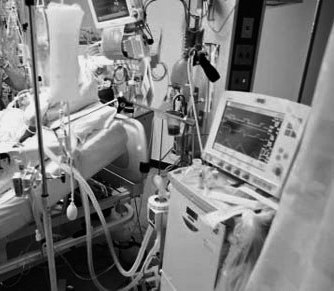 Evidence has mounted in recent years that survivors of critical illnesses, such as sepsis and acute organ failure, experience long-lasting cognitive and psychiatric effects long after they have been discharged from the hospital. But many questions about these connections remain. Researchers at the Perelman School of Medicine are uncovering some answers through their research on how patients with acute lung injury (ALI) are impacted by neuropsychological impairments, and potentially learning new ways to help prevent these late effects.
Evidence has mounted in recent years that survivors of critical illnesses, such as sepsis and acute organ failure, experience long-lasting cognitive and psychiatric effects long after they have been discharged from the hospital. But many questions about these connections remain. Researchers at the Perelman School of Medicine are uncovering some answers through their research on how patients with acute lung injury (ALI) are impacted by neuropsychological impairments, and potentially learning new ways to help prevent these late effects.
In the United States alone, 200,000 patients will develop ALI each year. ALI, also referred to as acute respiratory distress syndrome (ARDS), is a life-threatening lung condition that prevents enough oxygen from getting to the lungs and into the blood. Medical advances in ALI treatment have led to a dramatic increase in survival, resulting in an expanding population of survivors who must return home coping with problems that stand to impact every aspect of their lives.
Mark E. Mikkelsen, MD, MSCE, assistant professor of Medicine , along with a multi-institutional team of investigators led by Jason Christie, MD, MSCE, section chief, Medical Critical Care, recently published new research examining how ALI survivors from a multi-center trial are being impacted by a variety of long-term impairments. The study appears in the latest edition of the American Journal of Respiratory and Critical Care Medicine.
Traditionally, neuropsychological (cognitive and psychiatric) function is assessed in-person by an expert - a constraint that has limited the ability to study the frequency and possible reasons behind these impairments in critically ill populations. To overcome this barrier, the research team developed and validated a telephone-based test which could be used to study the neuropsychological health of survivors from a multi-center trial.
“The development of this phone-based evaluation has the potential to be a major breakthrough to further our understanding of critical illness-associated cognitive impairment and, ultimately, to improve the lives of survivors of critical illness,” says Mikkelsen.
The survey revealed that survivors experience moderate to severe cognitive impairment, including memory issues, difficulty with verbal fluency and decreased executive function. They also found that patients had significant symptoms of depression, anxiety, and PTSD.
“We’ve highlighted the need for further research to better understand the long-term neuropsychological effects of what we do in the ICU, and to learn how to effectively rehabilitate survivors, physically and mentally, to optimize their recovery,” said Mikkelsen.
Mikkelsen and other colleagues at Penn Medicine have already made important strides in effectively combating some of physical impairments that are also common after critical illness.
Recently, William Schweickert, MD, assistant professor of Medicine in the Pulmonary, Allergy, and Critical Care Division at Penn, conducted research that proved ICU patients have much better functional outcomes if physical and occupational therapists perform daily interruptions in their sedation paired with mobilization and exercise.
“Our goals as critical care physicians and researchers are two-fold: in the short-term, to improve survival, and in the long-term, to improve the lives of survivors,” Mikkelsen says. “We’re making great strides in helping these patients, but we still have a long way to go.”
Listen as Dr. Mikkelsen describes how this new research could impact patient care.
Learn more about the new research on the journal’s website.